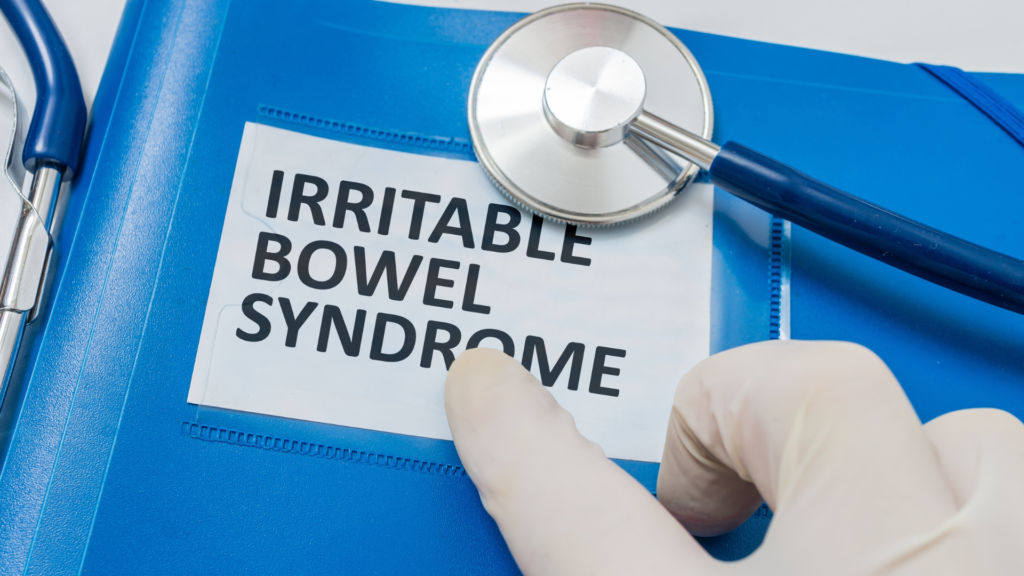Explore the scientific connection between IBS and autoimmune conditions in this expert medical breakdown.

IBS (Irritable Bowel Syndrome) and autoimmune diseases share several symptoms, leading many to question if IBS itself is autoimmune in nature. Let’s examine the scientific evidence and clarify this important distinction.
Table of Contents
Understanding IBS and Autoimmune Conditions
IBS affects your digestive system, causing symptoms like abdominal pain, bloating, diarrhea, and constipation. But unlike autoimmune diseases, IBS doesn’t involve your immune system attacking healthy cells.
Autoimmune diseases occur when your immune system mistakenly attacks your body’s own tissues. Common examples include:
- Celiac disease
- Rheumatoid arthritis
- Type 1 diabetes
- Multiple sclerosis
- Lupus
Why IBS Is Not Classified as Autoimmune
IBS differs from autoimmune conditions in several key ways:
1. No Tissue Damage
IBS doesn’t cause inflammation or damage to your intestinal tissue. When doctors perform colonoscopies on IBS patients, they find normal-looking intestines. This contrasts with autoimmune conditions like Crohn’s disease, where inflammation and tissue damage are visible.
2. No Immune Markers
Blood tests for IBS patients don’t show the elevated immune markers typical in autoimmune conditions. You won’t find increased antibodies or inflammatory proteins that characterize autoimmune responses.
3. Differing Treatment Approaches
Autoimmune diseases typically require immunosuppressive medications. IBS responds better to dietary changes, stress management, and gut-focused treatments.
The Gut-Immune Connection
While IBS isn’t autoimmune, your gut health and immune system are closely linked. Poor gut health can trigger immune responses and inflammation throughout your body. This connection explains why many people with autoimmune conditions also experience IBS-like symptoms.
Common Triggers for Both Conditions
IBS and autoimmune conditions often share triggers:
- Stress
- Food sensitivities
- Gut bacteria imbalances
- Environmental factors
Understanding the Brain-Gut Axis
Emerging research highlights the critical role of the brain-gut axis in IBS. This connection between the central nervous system (CNS) and the gut influences digestion, immune responses, and even emotional well-being. Stress, anxiety, and depression can disrupt this delicate balance, exacerbating IBS symptoms.
Addressing mental health and stress through therapies like mindfulness, meditation, or vibroacoustic therapy can improve gut function and alleviate IBS symptoms.
Treatment Approaches
Managing IBS requires a comprehensive approach. At Vitality BioMed, we offer several treatments and diagnostic tools that can determine the root cause of your gut issues and help regulate your digestive system.
Holistic Treatment Options
- Dietary modifications
- Stress reduction techniques such as our Vibroacoustic Therapy
- Gut health optimization
- Targeted vitamin supplementation
Personalized Nutrition for IBS
One-size-fits-all diets rarely work for IBS sufferers. Personalized nutrition plans tailored to individual triggers can significantly reduce symptoms. Common dietary strategies include:
- Low-FODMAP diets: Reducing fermentable carbs that can trigger bloating and discomfort.
- Elimination diets: Identifying and removing food sensitivities.
- Probiotic-rich foods: Supporting healthy gut bacteria balance.
A functional medicine approach can identify your specific dietary needs through tools like food sensitivity tests.
When to Seek Medical Help
See a healthcare provider if you experience:
- Persistent digestive symptoms
- Unexplained weight loss
- Blood in stool
- Severe abdominal pain
- Symptoms that interfere with daily life
The Role of Functional Medicine
Scientists continue to study the complex relationships between IBS, the immune system, and gut health. New research focuses on:
- Gut microbiome influence
- Neural pathways in digestion
- Genetic factors
- Environmental triggers
The Future of IBS Research
Scientists continue to study the complex relationships between IBS, the immune system, and gut health. New research focuses on:
- Gut microbiome influence
- Neural pathways in digestion
- Genetic factors
- Environmental triggers
Innovative IBS Therapies on the Horizon
Emerging treatments offer hope for those with IBS. Some exciting developments include:
- Fecal Microbiota Transplants (FMT): Transferring healthy microbiota to restore balance in the gut.
- Targeted antibiotics: Addressing bacterial overgrowth in small intestines (SIBO)
- Neuromodulation devices: Stimulating the vagus nerve to improve digestion.
These therapies are still under study but could revolutionize IBS management in the future.
Taking Action
If you struggle with IBS symptoms, working with healthcare providers who understand the complexity of digestive health is important. They can help create a personalized treatment plan that addresses your specific symptoms and triggers.
Remember that while IBS isn’t an autoimmune disease, it’s still a real condition that requires proper management and care. With the right support and treatment approach, you can effectively manage your symptoms and improve your quality of life.
Book a consultation with our certified medical practitioners to begin your journey on reclaiming your gut health so you can live worry free.
